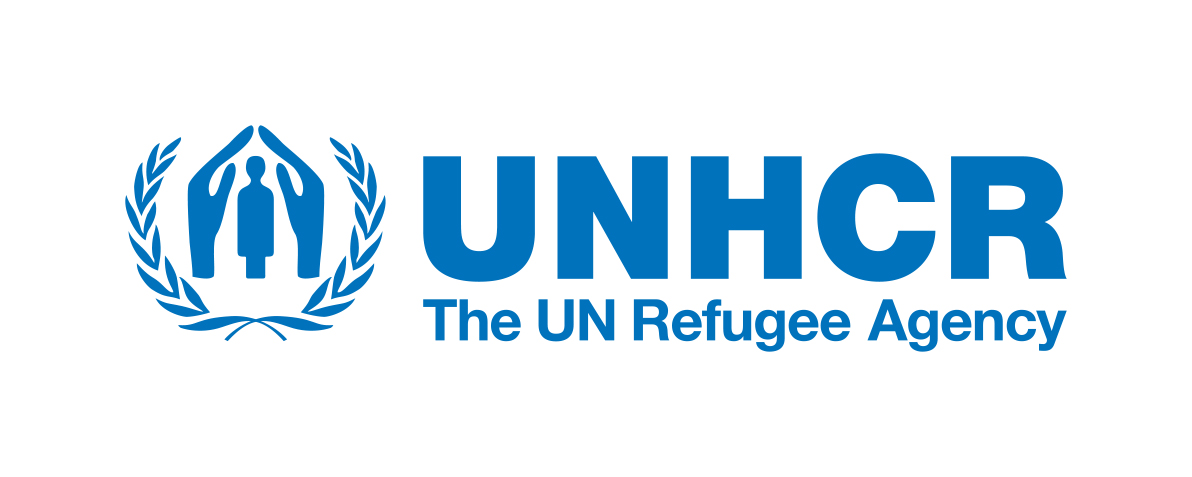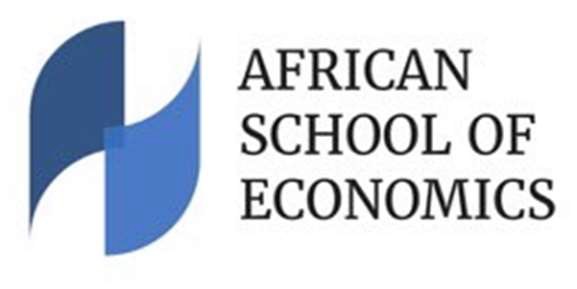3rd JDC Research Conference on Forced Displacement
Date: September 19-21, 2024
Location: Abidjan, Côte d’Ivoire and Online
In collaboration with the UN Refugee Agency, the World Bank and the African School of Economics (ASE), the World Bank – UNHCR Joint Data Center on Forced Displacement organized the 3rd JDC Research Conference on Forced Displacement from 19th to 21st September 2024.
Program
Opening and Welcome Session
Kaba Nialé, Minister of Planning and Development, Côte d’Ivoire
Abdouraouf Gnon-Konde, Regional Director, West and Central Africa Bureau, UNHCR
Tony Verheijen, Operations Manager for Côte d’Ivoire, Benin, Guinea and Togo, World Bank
Policy Session – Setting the Scene
Leonard Wantchekon, Professor of Politics and International Affairs, Princeton University; President and Founder, African School of Economics
Soukeyna Kane, Director of the Fragility, Conflict and Violence (FCV) Group, World Bank
Riadh Ben Messaoud, Transition States Coordination Office Lead Coordinator, African Development Bank
Abdouraouf Gnon-Konde, Regional Director for West and Central Africa, UNHCR
Moderated by Aissatou Maisha Dicko, Head of the Joint Data Center on Forced Displacement
Session 1 – Firms and entrepreneurship in the context of forced displacement
Thomas Ginn – Mentoring Small Businesses: Evidence from Uganda (Paper) (Presentation)
Maria Jose Silva-Vargas – Contact in the Workplace and Social Cohesion: Experimental Evidence from Uganda (Paper) (Presentation)
Tara Mitchell – Entrepreneurship support for refugees and host communities in a fragile context: evidence from a randomized experiment in Niger
Chaired by Volker Schimmel, Head of Global Data Service, UNHCR
Session 2 – Health and gender dimensions of forced displacement
Sandra Rozo – Regularization Programs and the Fertility of Forced Migrants: Insights from a Panel Study of Venezuelan Migrants in Colombia (Paper) (Presentation)
Laura Muñoz Blanco – Vaccine on the Move and the War on Polio (Paper) (Presentation)
Murat Kirdar – The Effects of Civil War and Forced Migration on Intimate Partner Violence among Syrian Refugee Women in Jordan (Paper) (Presentation)
Chaired by Nessa Kenny, Associate Program Director, Peace & Recovery, Innovations for Poverty Action
Panel 1: IDPs – Using data in Policies for IDPs
Robert Piper, UN Secretary-General’s Special Adviser on Solutions to Internal Displacement
Zahra Abdi Mohamed, Director of Poverty Reduction and Durable Solutions, Somalia
Honorable Virginie Baïkoua, Member of Parliament and Former Minister of Humanitarian Action and Solidarity, Central African Republic
Thuraiya Elwerfalli, Advisor at the Prime Minister’s Office, Libya
Moderated by Maja Lazić, Deputy Head of the Joint Data Center on Forced Displacement
Session 3 – Inclusion of the forcibly displaced: social, political and economic consequences
Henrique Pita Barros – The Power of Dialogue: Forced Displacement and Social Integration amid an Islamist Insurgency in Mozambique (Paper) (Presentation)
María José Urbina – Electoral Effects of Integrating Forced Migrants: Evidence from a Southern Country (Paper) (Presentation)
Bailey Palmer – Housing Subsidies and Well-being: Forecasts and Experimental Evidence from Syrian Refugees in Jordan
Chaired by Julia Lendorfer, Senior Social Development Specialist, World Bank
Recap of Day 1
Quy-Toan Do, Co-Director 2023 World Development Report & Lead Economist, World Bank
Session 4 – Attitudes and policies toward refugees
Colette Salemi – Does perceived labor market competition increase prejudice between refugees and their local hosts? Evidence from Uganda and Ethiopia (Paper) (Presentation)
Thomas Ginn – Attitudes and Policies toward Refugees: Evidence from Low- and Middle-Income Countries (Paper) (Presentation)
Mae Macdonald – Attitudes Towards Refugee Hosting and Integration Policies: Evidence from Kenya
Chaired by Bassirou Chitou, Dean, Abidjan Campus, African School of Economics
Session 5 – Unveiling unexpected and hidden consequences of forced displacement
Omar Hammoud-Gallego – Visa Policies and Porous Borders: Quasi-experimental Evidence on their Short and Long-term Effects from Peru
Christopher Blair – Refugee Return and Conflict: Evidence from a Natural Experiment (Paper) (Presentation)
Jonathan Lain – Comparing Internally Displaced Persons with Those Left Behind: Evidence from the Central African Republic (Paper) (Presentation)
Chaired by Linguère Mbaye, Principal Fragility and Resilience Officer, African Development Bank
Panel 2: Bridging the gap — Initiatives to close the gap between research & policy
Short presentations: initiatives to close the gap
Patricia Escalante, Data Scientist, International Monetary Fund
Domenico Tabasso, Senior Economist, Joint Data Center on Forced Displacement
Panel discussion:
Luis Felipe López-Calva, Global Director for the Poverty and Equity Global Practice, World Bank
Elizabeth Tan, Director of the Division of International Protection, UNHCR
Rose Oronje, Director, Public Policy and Knowledge Translation; Head of Kenya Office, African Institute for Development Policy
Moderated by Guy Grossman, Professor of Global Politics and International Relations, University of Pennsylvania
Session 6 – Labor market effects of regularization programs
Julie Bousquet – Is Giving Working Rights to Refugees Hurting their Hosts? Evidence from Jordan
Craig Loschmann – Labor Market Effect of Granting Amnesty to Venezuelan Refugees and Migrants in the Dominican Republic (Paper) (Presentation)
Angie Mondragón – Occupational downgrading of Venezuelan migrants in Colombia: Do work permits improve occupational mobility? (Paper) (Presentation)
Chaired by Raimi Fassassi, Lecturer, National School of Statistics and Applied Economics (ENSEA)
Keynote Lecture – Refugees, Children’s Health and Malaria Transmission in Africa
Anna Maria Mayda, Professor of Economics, Georgetown University (Presentation)
Recap of Day 2
Quy-Toan Do, Co-Director 2023 World Development Report & Lead Economist, World Bank
Session 7 – Wellbeing and mental health
Efobi Uchenna – Exploring the Spillover Effects of Internally Displaced Settlements on the Wellbeing of Children of the Locales (Paper) (Presentation)
Andrés Moya – Caregiver Mental Health and Early Childhood Development: Experimental Evidence from a Conflict-Affected Setting (Paper) (Presentation)
Emma Smith – Stigma and Social Cover: A Mental Health Care Experiment in Refugee Networks (Paper) (Presentation)
Chaired by Quy-Toan Do, Lead Economist, Development Research Group, World Bank
Keynote Lecture – Refugee Policy and Refugee Integration
Guy Grossman, Professor of Global Politics and International Relations, University of Pennsylvania (Presentation)
Closing Session
Olivier Guillaume Beer, Representative in Côte d’Ivoire, UNHCR
Aissatou Maisha Dicko, Head of the Joint Data Center on Forced Displacement
Speakers
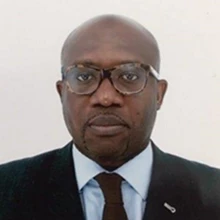
Abdouraouf Gnon-Konde
Abdouraouf Gnon-Konde took office as the Director of the Regional Bureau of UNHCR for West and Central Africa on July 1, 2023. Previously, Abdouraouf served as the Resident Representative of UNHCR in Burkina Faso and Acting Resident Coordinator of the United Nations System in Burkina Faso and Humanitarian Coordinator. He notably held the position of Head of Section (covering all UNHCR operations globally) for European Affairs and resource mobilization at the UNHCR Regional Representation in Brussels, Belgium and also worked as Deputy Resident Representative of UNHCR in various operations in Africa, notably in Côte d’Ivoire, Niger, and Chad.
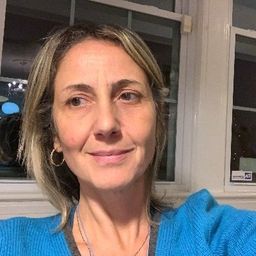
Anna Maria Mayda
Anna Maria Mayda is a Professor of Economics at the School of Foreign Service and Department of Economics at Georgetown University. Previously she worked at the World Bank in the Latin America and Caribbean Region Unit. Her research focuses on international migration, international trade and political economy. Anna Maria studied Economics and Statistics at the University of Rome La Sapienza, and she received her MA and PhD in Economics from Harvard University in 2003. She is a research fellow at the Centre for Economic Policy Research, the Institute of Labor Economics, and the Centre for Research and Analysis of Migration.
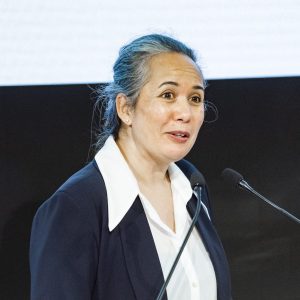
Elizabeth Tan
Elizabeth Tan was appointed the Director of UNHCR’s Division of International Protection in June 2022. She joined UNHCR in 1995, and has held in numerous positions in Protection, Policy and Management, working in various operations worldwide including Burundi, Sudan, Sri Lanka, and Egypt. She also has experience working at the Africa Bureau at the UNHCR headquarters in Geneva.
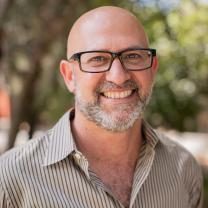
Guy Grossman
Guy Grossman is a professor at the political science department at the University of Pennsylvania. His research is in applied political economy, with a substantive focus on governance, migration and forced displacement, human trafficking, and conflict processes, mostly in the context of developing countries. Guy is the founder and co-director of Penn’s Development Research Initiative (PDRI-DevLab). He holds a Ph.D. in Political Science from Columbia University (2011, with distinction) as well as MA in Political Philosophy and LLB in Law, both from Tel-Aviv University.
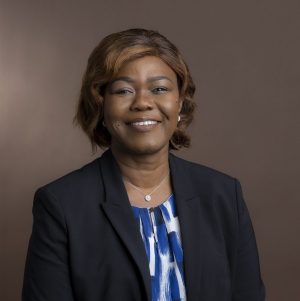
Honorable Kaba Nialé
Kaba Nialé is an Ivorian politician who has been serving as Minister of Planning and Development and President of the Board of Governors of African Development Bank (AFDB) since 2019. Mrs. Nialé began her career as a researcher and soon after became chief of staff to the Prime Minister. From 2003 to 2005, she served as the Chief of Staff to the Minister of Crafts and Supervision of the Informal Sector before her appointment as General Manager of Côte d’Ivoire Tourisme from 2005 to 2007. She was appointed Minister of Housing Promotion of Côte d’Ivoire in the government of Prime Minister Guillaume Soro, serving from 2011 to 2012. Mrs. Nialé emerged the first woman to head the Ministry of Economy and Finance in Côte d’Ivoire when she was appointed on 22 November 2012 and served until January 2016 when she was redeployed to the Ministry of Planning and Development.
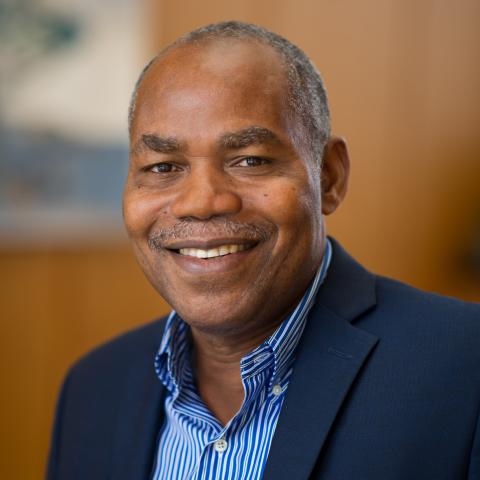
Leonard Wantchekon
Leonard Wantchekon is the James Madison Professor of Political Economy and Professor of Politics and International Affairs at Princeton University, as well as associated faculty in Economics. A scholar with diverse interests, Leonard has made substantive and methodological contributions to the fields of political economy, economic history and development economics. He taught at Yale University (1995–2001) and New York University (2001–2011). He has an M.A. in Economics from Laval University and the University of British Columbia and he received his Ph.D. in Economics from Northwestern University. He is the Founder and President of the African School of Economics, which opened in Benin in 2014.
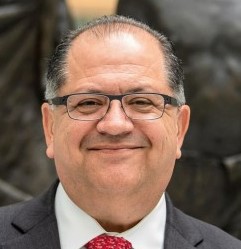
Luis Felipe López-Calva
Luis Felipe López-Calva is the Global Director for Poverty and Equity at the World Bank Group. He has over 30 years of professional experience working with international institutions and advising national governments. He rejoined the World Bank in 2022 from the United Nations Development Programme, where he served as UN Assistant Secretary General and Regional Director for Latin America and the Caribbean since 2018. He has held research and teaching positions at El Colegio de Mexico, ITESM-Mexico and the University of California in San Diego. He has also held visiting scholar positions at Harvard University, Stanford University, and the World Institute for Development Economics Research.
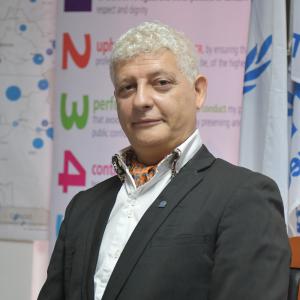
Olivier Guillaume Beer
Olivier Guillaume Beer became the new representative of the United Nations High Commissioner for Refugees (UNHCR) in Côte d’Ivoire in June 2024. Before his appointment in Côte d’Ivoire, he was UNHCR Representative in Cameroon for four years. He also served as Deputy Representative in the Democratic Republic of Congo and Mali. Before joining UNHCR, Olivier worked for the Belgian Agency for Cooperation and Development, as well as for the General Commission for Refugees and Stateless Persons in Belgium. With more than 20 years of experience with the United Nations Refugee Agency, he has an excellent mastery of the humanitarian sector having successfully served in different operations in Africa and beyond.
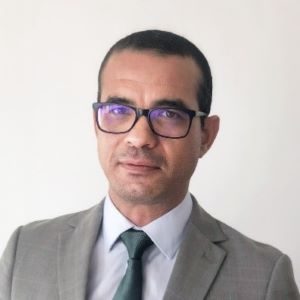
Riadh Ben Messaoud
Dr. Riadh Ben Messaoud has been with the African Development Bank Group since 2008. He currently serves as Lead Coordinator in the Transition States Coordination Office, where he oversees the Bank’s analytical, strategic, and operational initiatives to address fragility and build resilience across Africa, with a particular focus on West and Central Africa. Prior to joining the African Development Bank, Riadh was an Assistant Professor at Université Carthage, Tunisia, specializing in Knowledge Management. A Tunisian national, Riadh holds a Ph.D. in Business Intelligence and a Master’s degree in Knowledge Management from Université Lumière Lyon II, France.
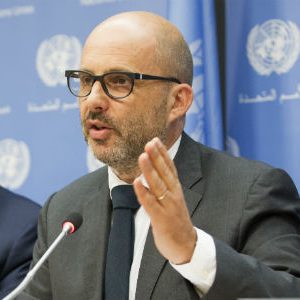
Robert Piper
Robert Piper took up the post of the Secretary-General’s Special Adviser on Solutions to Internal Displacement in June 2022. Prior this, Robert served as Assistant Secretary-General for Development Coordination. He brings to the position more than 30 years of experience in international development, humanitarian response and peacebuilding at the United Nations which he joined in 1990 at the United Nations Population Fund (UNFPA) in Bangkok. Since then, he has held a number of key positions within UNDP at Headquarters, and in the field, including as inaugural Director for the Millennium Development Goals Achievement Fund and as Deputy Director for Emergency Response.
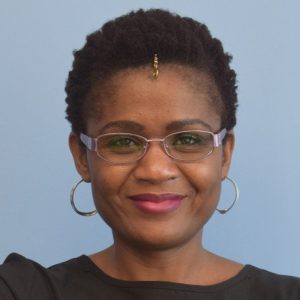
Rose Oronje
Rose Oronje is currently Director of Public Policy and Knowledge Translation, and Head of Kenya Office at the African Institute for Development Policy. She is a development policy and communications specialist with over 15 years’ experience in designing and implementing public policy and governance research, knowledge translation, communication and evidence uptake interventions, and capacity development for enabling evidence-informed decision-making (EIDM) in development efforts in Africa. Prior to joining AFIDEP, Rose headed the Policy Engagement and Communications unit at the African Population and Health Research Center (APHRC) from 2004-2009. Rose earned her Ph.D. from the Institute of Development Studies at the University of Sussex, United Kingdom.
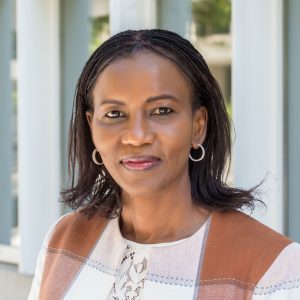
Soukeyna Kane
Soukeyna Kane is Director of the Fragility, Conflict and Violence (FCV) Group at the World Bank. She is responsible for leading a team of dedicated professionals to deliver strategic, operational, and analytical support to the World Bank Group’s work on FCV issues. Ms. Kane joined the Bank in March 2003 as a Senior Financial Management Specialist and also held positions in the Africa Region, Operations Policy and Country Services (OPCS), Middle East and North Africa (MENA) Region. Previously, she served as Country Director for Mali, Burkina Faso, Niger and Chad, leading the coordination and delivery of WBG strategy and operations in those countries and the Sahel more broadly. Prior to that, Ms. Kane was Practice Manager for Governance in the East and Central Asia region for 5 years. She has also held several leadership positions at the African Development Bank and in the private sector in Senegal and France.
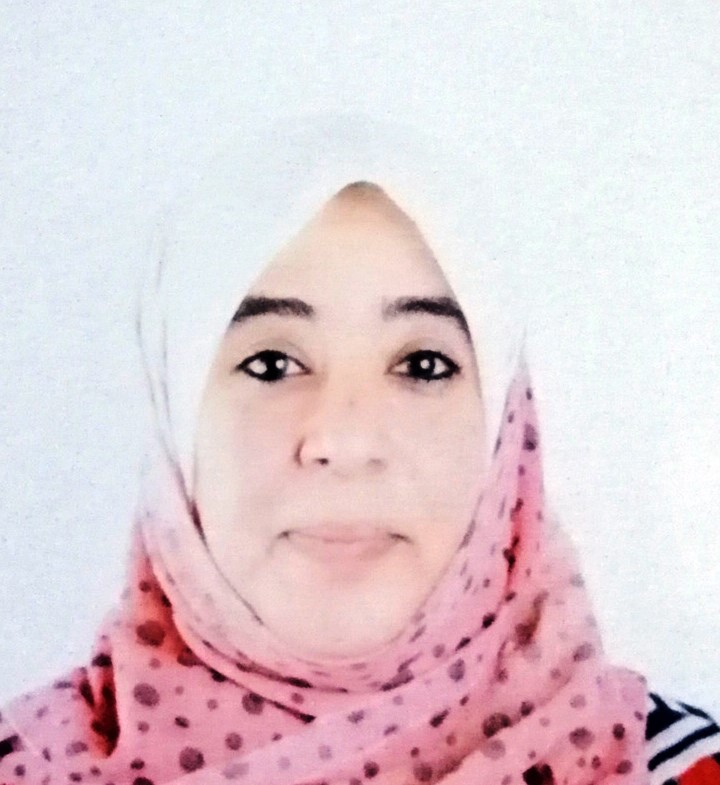
Thuraiya Elwerfalli
Thuraiya Elwerfalli is International Cooperation consultant in the Department of Foreign Affairs and International Cooperation, Prime Minister’s Office, Government of National Unity (Libya). Dr. Thuraiya holds a doctorate in administration, specializing in violent conflict management and early warning systems. She has been with the Prime Minister’s Office since 2004 and previously served as Director of the Department of Foreign Affairs and International Cooperation (2018-2021) and Head of the Department of International Organizations (2006-2008). Dr. Thuraiya focuses on Migration, border security, smuggling, and human trafficking; Displacement and durable solutions for displaced populations; Libya’s priorities in achieving sustainable development goals in partnership with the United Nations Office in Libya.
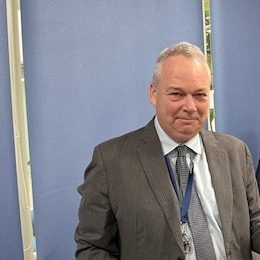
Tony Verheijen
Tony Verheijen, currently the World Bank Operations Manager for Cote d’Ivoire, Benin, Guinea and Togo, has had a 20-year career with the World Bank that has spanned three continents and focused primarily on public sector management, civil service reform, governance and anti-corruption, and economic management issues. Previously he was based in Kabul, Afghanistan as Operations Manager, in Tunisia as World Bank Country Manager and in Belgrade as the World Bank Country Manager for Serbia. Mr. Verheijen has also held teaching and research positions at the College of Europe, Leiden University and the University of Limerick. He holds an MA in International Relations from the Université Libre de Bruxelles and a PhD from Leiden University.
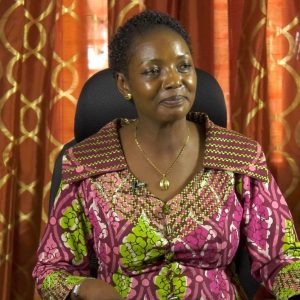
Honorable Virginie Baïkoua
Virginie Baikoua is Member of Parliament and Former Minister of Humanitarian Action and Solidarity in Central African Republic. On 11 April 2016, Mrs. Baikoua was appointed by Sarandji as the minister of Social Affairs and National Reconciliation. On 24 June 2021, she was reappointed as the minister of humanitarian action under the name of Minister of Humanitarian Action and Solidarity. Before her ministerial roles, Mrs. Baikoua served as the Executive Secretary in the Social and Sanitation sector at the Urban Community of Lyon, a position she held until 2008. She is also founder of the International Non-Governmental Organization SOLISIDAC (Solidarity Against AIDS in the Central African Republic) in 2003.
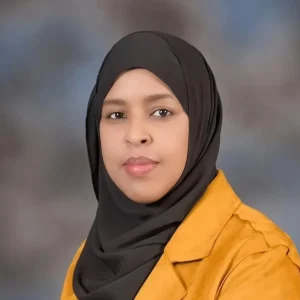
Zahra Abdi Mohamed
Zahra Abdi Mohamed serves as the Director of Poverty Reduction and Durable Solutions for the Federal Government of Somalia. A seasoned humanitarian and development expert, she brings extensive experience in leading operations, shaping strategic initiatives, and engaging key stakeholders, including beneficiaries and donors. With over seven years of experience, Ms. Mohamed has worked extensively with internally displaced persons (IDPs), returnees, and refugees, particularly in emergency and protracted conflict settings. She has excellent knowledge in emergency response, capacity building, and human resource management. Ms. Mohamed holds a Master’s degree in International Cooperation and Humanitarian Aid.

